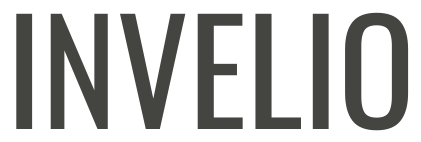Holistic financial planning is a comprehensive approach to managing your finances, addressing every aspect from daily spending to long-term investments. This method ensures that each financial decision is aligned with your overall life goals, providing a clear roadmap for both immediate needs and future aspirations. By integrating all elements of your financial life, holistic financial planning offers a complete solution to achieving financial well-being.
Understanding Holistic Financial Planning
We’re exploring the world of holistic financial planning—a comprehensive approach that aligns your financial activities with your deeper life goals. By considering the big picture, we’re better equipped to create not just a plan, but a financial journey that resonates with our values.
Core Principles of Holistic Approach

The heart of a holistic approach lies in its attention to both the financial and emotional components of your wealth. Key principles include:
- Integration: Every part of your financial plan, from your daily budget to your retirement planning, should work in harmony.
- Customization: Your financial plan is tailored to your unique goals, values, and circumstances.
- Adaptability: Life changes and your financial plan must be flexible enough to evolve with your personal and economic shifts.
The Holistic Planning Process
Creating a holistic financial plan is a dynamic, step-by-step journey tailored to your specific needs:
- Define Goals: Outline your short-term and long-term financial goals in clear, actionable terms.
- Assess Finances: Take stock of all your financial resources and obligations to understand your starting point.
- Develop Strategy: Devise a comprehensive strategy that addresses all aspects of your financial life.
- Implement Plan: Put your tailored plan into action, integrating investment choices with tax strategies and estate planning.
- Review & Adjust: Regularly review your plan to ensure it stays aligned with your evolving goals and values.
A holistic financial plan is not a one-time report, but an ongoing process that adapts as you move through life’s stages. By keeping the big picture in focus, we ensure all pieces of the financial puzzle fit together to support the life you envision.
Advisor and Client Relationships

When we embark on holistic financial planning, the relationship between a financial advisor and their client becomes the cornerstone of success. It’s a partnership where mutual trust, clear communication, and understanding of financial goals are vital.
Choosing the Right Financial Advisor
Finding an advisor who aligns with our financial goals is essential. We should look for professionals who are not only knowledgeable but also take the time to fully understand our needs. A good match can be the difference between a generic financial plan and a tailored approach that comprehensively addresses our objectives.
Fee-Only vs. Commission-Based Advisors
Fee-Only Advisors:
- Charge a flat rate or a percentage of assets under management.
- Can reduce conflicts of interest related to product recommendations.
Commission-Based Advisors:
- Earn money on products they sell to clients.
- Might have a bias towards products that offer them higher commissions.
As clients, we need to consider whether our advisors’ incentives align with our best interests. Transparent discussions about fees and commissions are imperative.
The Role of Fiduciary Responsibility
A fiduciary is an advisor entrusted with ethical and legal obligations to act in our best interests. These advisors avoid conflicts of interest, operate with transparency, and are often preferred, as they are bound to choose financial products and services that best meet our needs, not products that benefit them with higher commissions. If a fiduciary duty is important to us, confirming that our financial advisor has this responsibility should be a part of our selection criterion.
Our relationship with our financial advisor is facilitated by resources like a client portal, which promotes continuous communication and easy access to financial plans and documents. Choosing the right advisor, understanding their fee structure, and ensuring they have a fiduciary responsibility will significantly enhance our holistic financial planning journey.
Developing Your Financial Plan

In holistic financial planning, we focus on integrating various elements of your finances to support your life’s objectives. Let’s dive into crafting a plan tailored to your needs.
Setting Short and Long-Term Goals
Our financial journeys begin with goals. Short-term goals often include saving for a vacation or establishing an emergency fund, while long-term goals may be retirement or purchasing a home. Specificity is key; we’ll outline your desired achievements, and detail the steps needed to get there, ensuring they reflect your broader life aspirations.
Budgeting and Cash Flow Management
Effective budgeting forms the backbone of sound financial planning. We’ll create a budget that tracks your income and expenses, categorizing your cash flow to illuminate areas where you can save. This enables us to make informed decisions about how to allocate funds efficiently, boosting your saving potential.
Risk Tolerance and Asset Allocation
Understanding your comfort with risk influences your investment choices. A thorough assessment of your risk tolerance helps us determine the right asset allocation, balancing potential returns with the level of risk you’re willing to take. This approach ensures your investment strategy aligns with both your financial goals and peace of mind.
Diversification of Investments
To mitigate risk, diversification is crucial. We’ll spread your investments across different asset classes and sectors to reduce the impact of market volatility on your portfolio. By not putting all our financial eggs in one basket, we can work towards more stable long-term growth.
Ongoing Financial Review and Reevaluation

In holistic financial planning, it’s essential we regularly check in on our financial plan to ensure it keeps pace with our evolving lives.
Adapting to Life Changes
Life is full of surprises and changes, such as a new career, marriage, or the birth of a child. It is critical we adapt our financial plan to these milestones. We must routinely align our budgeting strategies with life goals to maintain a plan that serves our current needs.
Monitoring Investments and Adjusting Plans
Investment management isn’t a set-and-forget process. We need to constantly monitor our investments and retirement portfolios. As the markets shift, so should our strategies to protect and grow our brokerage accounts. Regular review can lead us to adjust our plans to keep us on track toward our financial objectives.
Using Client Portals for Transparency
To keep us informed and engaged with our financial journey, utilizing client portals enhances transparency. These allow us to view our spending, investments, and progress toward our goals, empowering us to make better financial decisions.
Frequently Asked Questions
What is a holistic approach to financial planning?
A holistic approach in financial planning involves looking at your entire financial picture, not just individual investments or savings. It’s about ensuring all parts of your financial plan work together harmoniously.
What is the difference between holistic and comprehensive financial planning?
While both holistic and comprehensive financial planning consider your entire financial situation, holistic planning often integrates life goals and personal values into the financial planning process.
What are the 4 areas of the holistic approach?
The four areas of the holistic approach usually include financial situation assessment, goal setting, plan development, and ongoing review. Each area is crucial to the financial planning process.
What is holistic budgeting?
Holistic budgeting is creating a budget that takes into account all facets of your financial life, including current expenses, savings, investments, and future financial goals, ensuring they align with your overall life plans.
Helpful? (;
Let us know in the comments, if this article about holistic financial planning was helpful for you. Please also contact us, if you need further information on this topic.
If you liked this article, you may also like:






